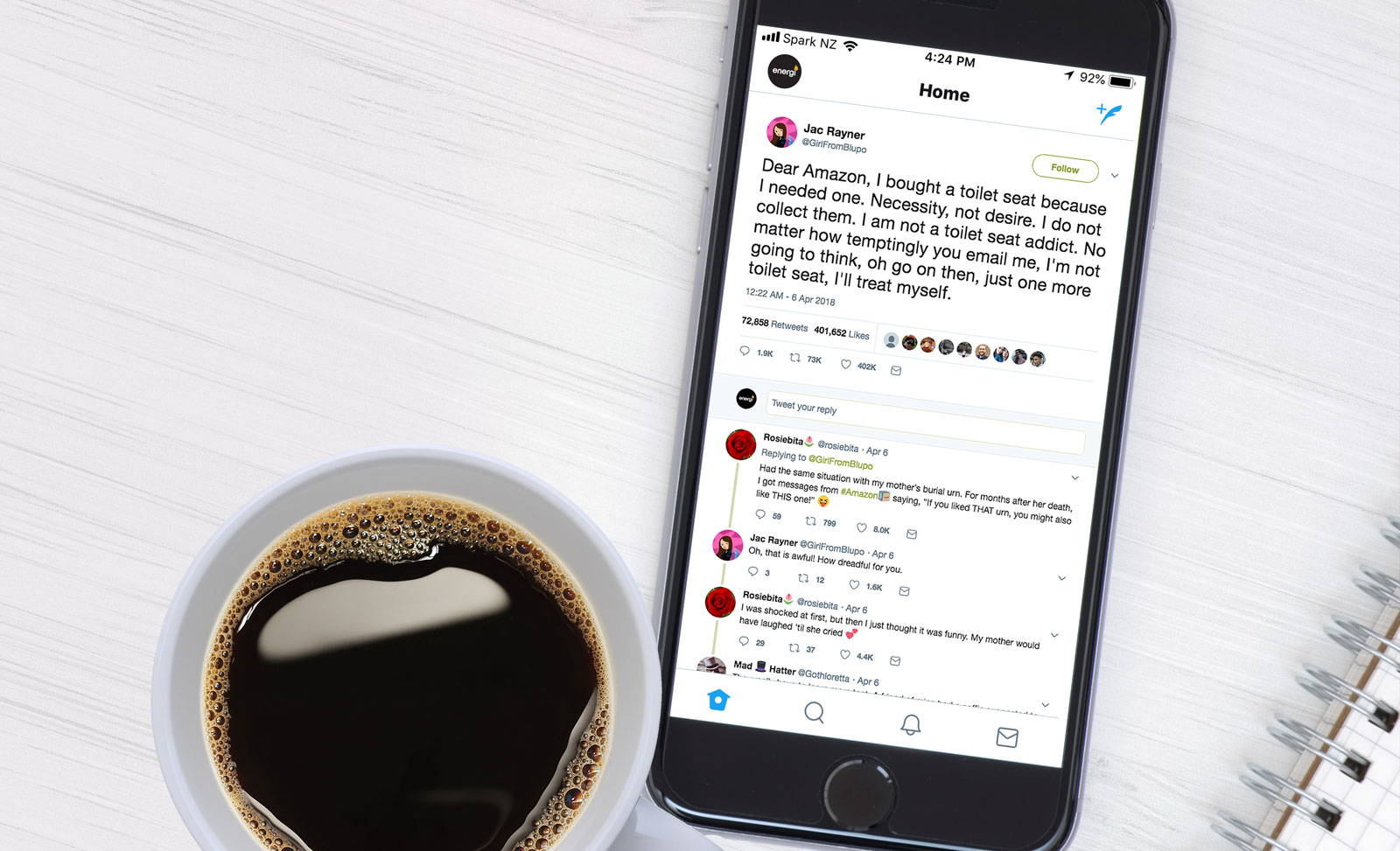Another day starts and I see my in-box has its usual flood of 20-odd eDMs and texts desperately craving my attention. I’m barely awake and already I need to be on my game because apparently…
“Why am I waiting? I could be the winner of $10 million.”
“How likely am I to recommend us to a friend or colleague?”
I’ve been given “All these exclusive Akl travel offers”, even though I live in Auckland. There’s more stuff to spoil my dog with.
And I’ve “only got 5 days” to buy a bunch of shirts.
Does this sound familiar?
No doubt I had some dealing with each of these organisations at some point. I might have bought something. I might have visited their website. Or I might just look like someone who has.
The reality is that they have me on their database and assume that I want their messages. Maybe I opted-in at some point, but I don’t specifically recall doing so.
They probably assume that I like things to be personalized. And they assume that they have the right to send things to me as often as they like. And for quite a few that seems to mean every day.

They assume that I am “always-on” and ready to receive.
But I’m not. I sit in a kind of stasis; not wanting to engage, too indifferent to unsubscribe. And I’m not alone.
In a talk given at the Synergy Digital Forum in Moscow this year, Sam Scott outlined a series of ‘big lies’ that the Martech and Adtech communities perpetuate. His #1 lie was that people don’t actually want personalized ads. That only marketers and their agencies that sell these kinds of solutions want them, believing that personalization means relevance, which means a greater likelihood of conversion.

However, the evidence contradicts this. An eDM campaign with a 3% conversion rate would be regarded as a great success. What does that say about the other 97 percent. What is the likely reaction from them? Are they grateful for their decline? Are they ambivalent? Are they annoyed?
“In a 2009 University of Pennsylvania study, 66% of all Americans said they didn’t want direct marketing tailored to their interests.”
This rose to 86% when informed about how their data was collected.
According to Globalwebindex 36% of all internet users, and 40% of all millennials, had some form of ad-blocking on their computer and 33% on their mobile device (up from 27% in 2015).
The European Union’s GDPR means that companies can no longer collect and use personal data without their explicit, opt-in consent.
And as I write I see that Facebook’s market cap has plummeted by US$150 billion in 2 hours amid worries about a political and social backlash against privacy and the use of personal data.
I think the point of all this ladders back to customer experience. The unintended consequence of constantly pitching direct offers is that they create a negative irritation and loss of brand appeal when they are frequent, blunt and one-dimensional.
Personalizing the address is one thing, but only delivering an endless torrent of offers misses the point of a customer relationship. It should be about cultivating a shared interest, not just a transaction. There needs to be more imagination and effort to engage me with the subject we apparently share: about the pleasure of travel, or dressing for work, or ways to look after my pet.
Now, I have some shirts to buy.





